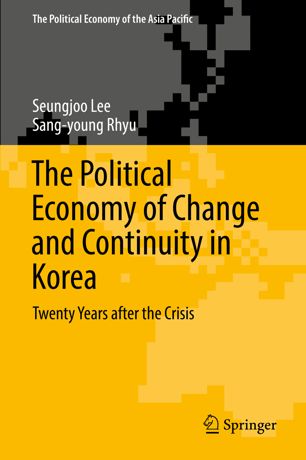

Most ebook files are in PDF format, so you can easily read them using various software such as Foxit Reader or directly on the Google Chrome browser.
Some ebook files are released by publishers in other formats such as .awz, .mobi, .epub, .fb2, etc. You may need to install specific software to read these formats on mobile/PC, such as Calibre.
Please read the tutorial at this link: https://ebookbell.com/faq
We offer FREE conversion to the popular formats you request; however, this may take some time. Therefore, right after payment, please email us, and we will try to provide the service as quickly as possible.
For some exceptional file formats or broken links (if any), please refrain from opening any disputes. Instead, email us first, and we will try to assist within a maximum of 6 hours.
EbookBell Team

0.0
0 reviewsThis book analyzes the transformation of Korean political economy since the 1990s. In the wake of the Asian financial crisis of 1997, the political economy of South Korea has evolved around two diametrically opposed features: convergence into the Anglo-American model and the state-led strategic restructuring of industries. To unravel the peculiar nature of the political economy in Korea, the authors first identify major factors that contributed to the dual dynamics of change and continuity in Korea: external pressures, ideological shift in political leadership, and the pivotal role of the Korean government. Next, they examine the way in which these factors interacted with each other to reshape the evolutionary path of the Korean political economy. Using several case studies, the authors take us through the stages of this transformation, from the reform of the chaebols to the industrial restructuring of the auto, IT, and aerospace industries to the rise of South Korea’s Free Trade Agreements (FTA) initiative. In explaining the role that the dual dynamics of change and continuity play in modern Korean political economy, this book makes an important contribution to the existing literature and will be of interest to scholars and policy-makers concerned with development in Korea and the Asia-Pacific.